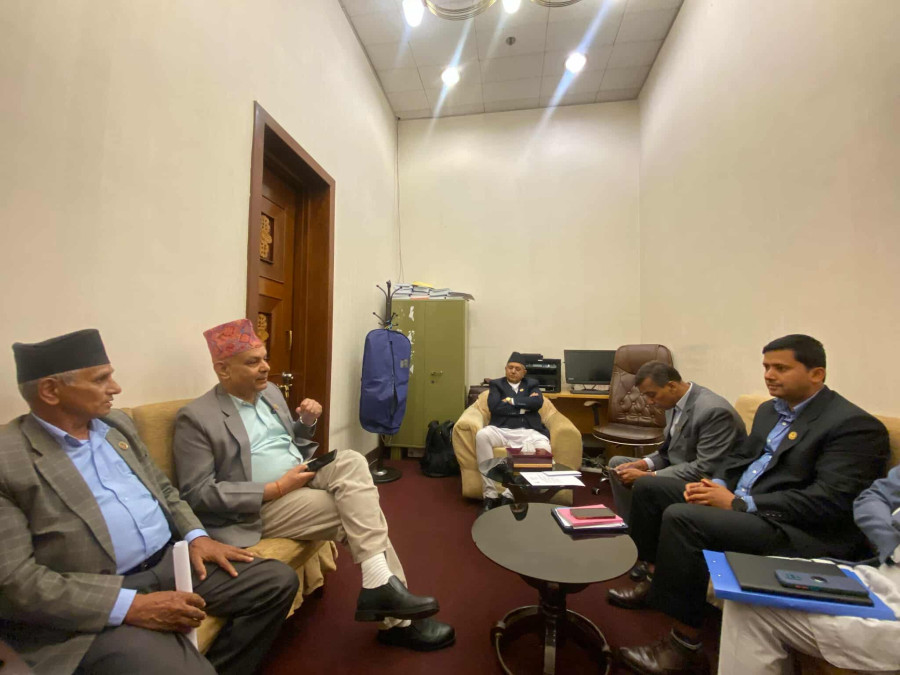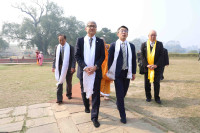National
House session postponed until Thursday as opposition stands firm on visit visa row
Parliamentary proceedings remain paralysed amid opposition calls for Home Minister Lekhak’s resignation and independent probe into the scam.
Post Report
The House of Representatives meeting scheduled for Wednesday has been postponed until 1 pm Thursday, as a prolonged impasse over the ‘visit visa controversy’ continues to stall parliamentary business.
Wednesday’s sitting, initially set for 1 pm, was delayed to 3:15 pm before being deferred again. This marks the fourth consecutive disruption of the House proceedings over the contentious issue, following similar obstructions on May 27 and 28, and again on Tuesday.
The opposition parties, however, allowed the government to present its annual budget in the joint meeting of the federal parliament on May 29 as per the constitutional provision that has made it mandatory to unveil the government’s budget on Jestha 15 (this year on May 29).
Then, they resumed the House obstruction from the next meeting.
At the heart of the deadlock is the opposition’s demand for the resignation of Home Minister Ramesh Lekhak. They allege that his office was involved in facilitating human trafficking through the misuse of visit visas, particularly via Tribhuvan International Airport. The opposition claims that officials close to Lekhak exploited Nepali citizens seeking to travel abroad, turning the visa process into a lucrative racket.
Opposition lawmakers, especially from the CPN (Maoist Centre) and the Rastriya Swatantra Party, have reiterated that an impartial investigation is impossible without the minister stepping down.
In a meeting called by Speaker Devraj Ghimire on Wednesday afternoon, chief whips of major parties gathered to resolve the standoff, but no breakthrough was achieved.
“Our stance remains unchanged,” said Maoist Chief Whip Hit Raj Pandey following the meeting. “We are asking for two things: the resignation of the Home Minister to pave the way for a fair investigation, and the formation of a parliamentary committee to probe the scandal. Without that, we cannot allow the House to proceed.”
The ruling coalition, led by UML and the Nepali Congress, has rejected the demand for a separate investigation, pointing out that the Commission for the Investigation of Abuse of Authority (CIAA) is already handling the matter. Government representatives argue that parallel investigations would undermine due process and politicise an ongoing legal inquiry.
Despite several rounds of negotiations, the government and opposition remain at odds. Unless a compromise is reached, it appears likely that further House sessions will also face disruption.




 15.12°C Kathmandu
15.12°C Kathmandu














